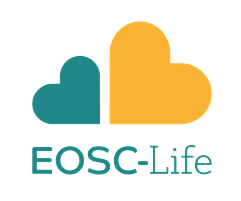
About PIDAR
The Preclinical Image DAtaset Repository (PIDAR) is a public repository of metadata information of preclinical image datasets from any imaging modality associated to peer-reviewed publications. The imaging metadata are organized as “collections” defined by a common disease, image modality or sub type (MRI, CT, PET, etc) or research focus.
An emphasis is made to provide supporting data related to the images such as outcomes, treatment details, genomics and expert analyses. The main aim of this repository is to make the dataset FAIR: Findable, Accessible, Interoperable and Reusable inside the scientific community. All the datasets are supposed to be accessible through a license.
Download PIDAR
PIDAR allows the access to the full repository and the download of all the datasets in CSV,PDF,JSON and XLSX formats. The files are always updated through the database and contains all the metadata list with references to the ontology.
Ontology references and Metadata
Ontologies are widely used in biological and biomedical research. The goal is to make the research easier with the use of synonyms which are coded by the ontology of each field. Six principal metadata have been treated with the use of ontology:
- Imaging modality and sub modality: Analyzed with the NCIT ontology (NCI Thesaurus), which includes broad coverage of scientific fields. The NCIt OBO Edition aims to increase integration with OBO Library ontologies and should be considered experimental.
- Pharmacological and anesthetic drugs, and contrast agents: Coded via ChEBI ontology. ChEBI is a dictionary of molecular entities focused on small chemical compounds. These drugs are also linked with the European Chemical Biology Database (ECBD), developed under FAIR principles.
- Disease models: Supported by DOID codes from the Disease Ontology, which describes human diseases organized by etiology.
- Cell lines: Classified using the Cell Line Ontology (CLO), a community-based ontology that standardizes publicly available cell line data.
- Strains repository: Disease models are linked to EMMA strains carrying transgenes or mutant alleles, annotated by Mouse Genomic Informatics (MGI) and supported by expert-reviewed publications.
For easier research management, a drop-down menu is implemented allowing search for specific metadata. The metadata selectable from the menu are the principal ones described above, supported with ontology codes.
Acknowledgements
We thank the European Union’s Horizon 2020 research and innovation programme under grant agreements #824087 (EOSC-LIFE project) and #101058427 (EOSC4Cancer project) and the Horizon Europe programme under grant agreements #101130986 (EVOLVE project) and #101130216 (FoundingGIDE project).
License
This work is shared with a Creative Commons Attribution 4.0 International License.
Cite us
PIDAR is also mentioned inside the FAIRsharing website.
You can cite us under the DOI of FAIRsharing: 10.25504/FAIRsharing.f64055
You can also see inside the Re3data page and cite us under the DOI: http://doi.org/10.17616/R31NJNGK


